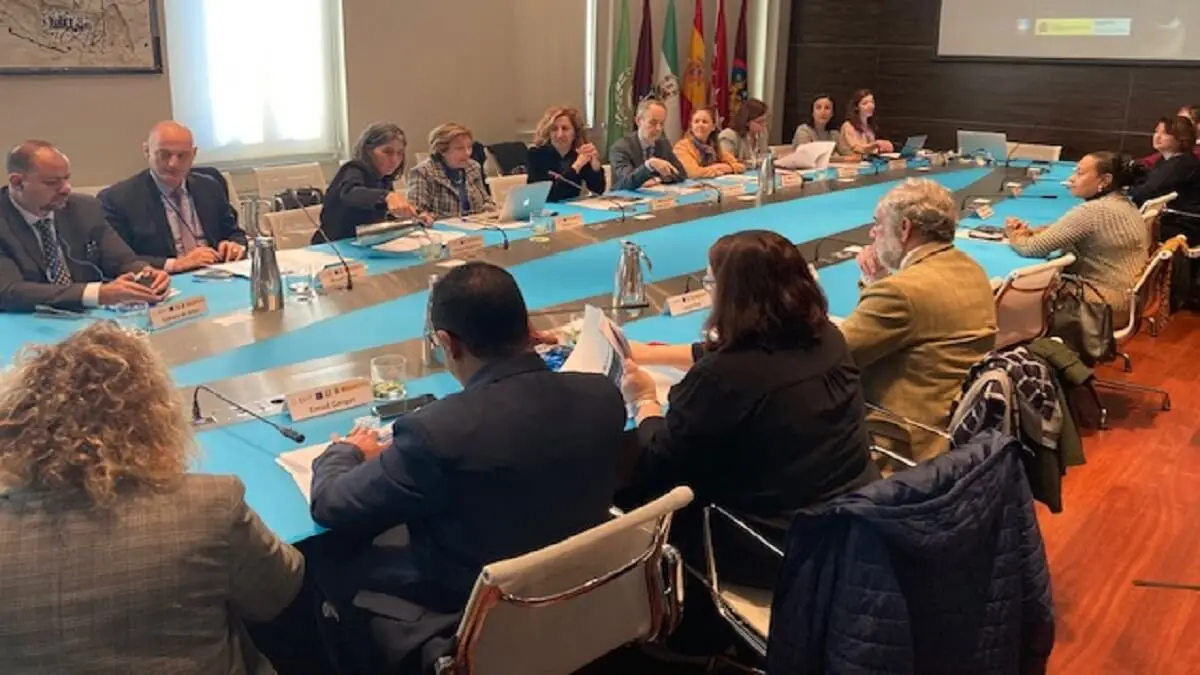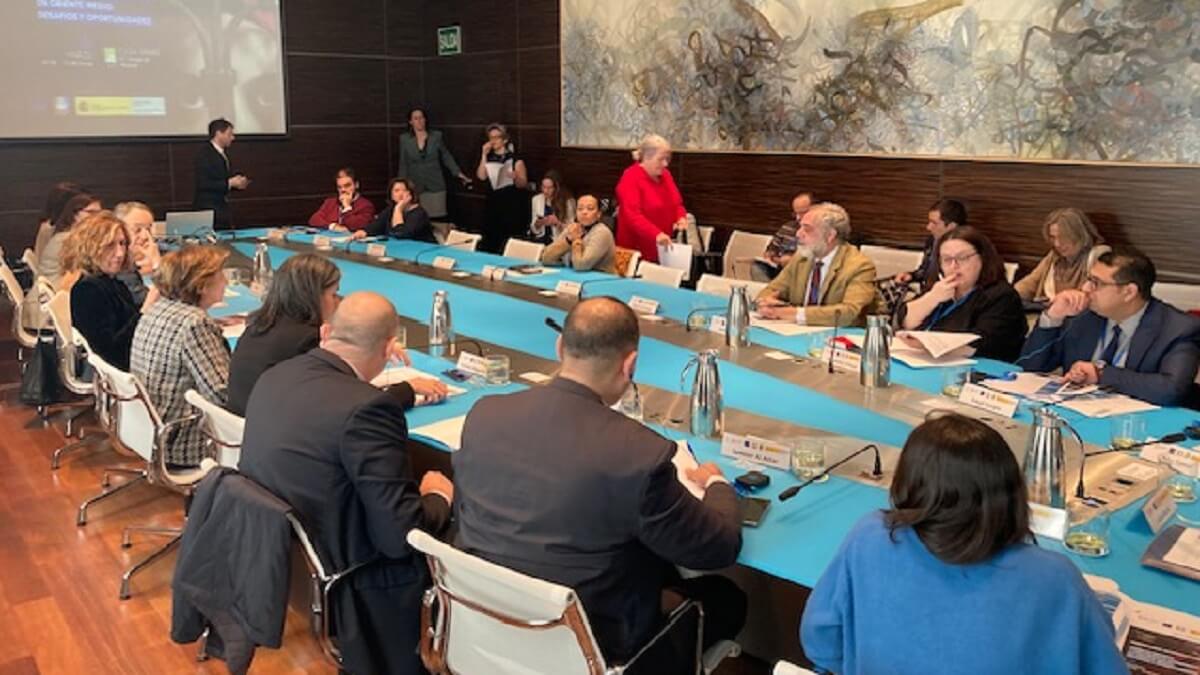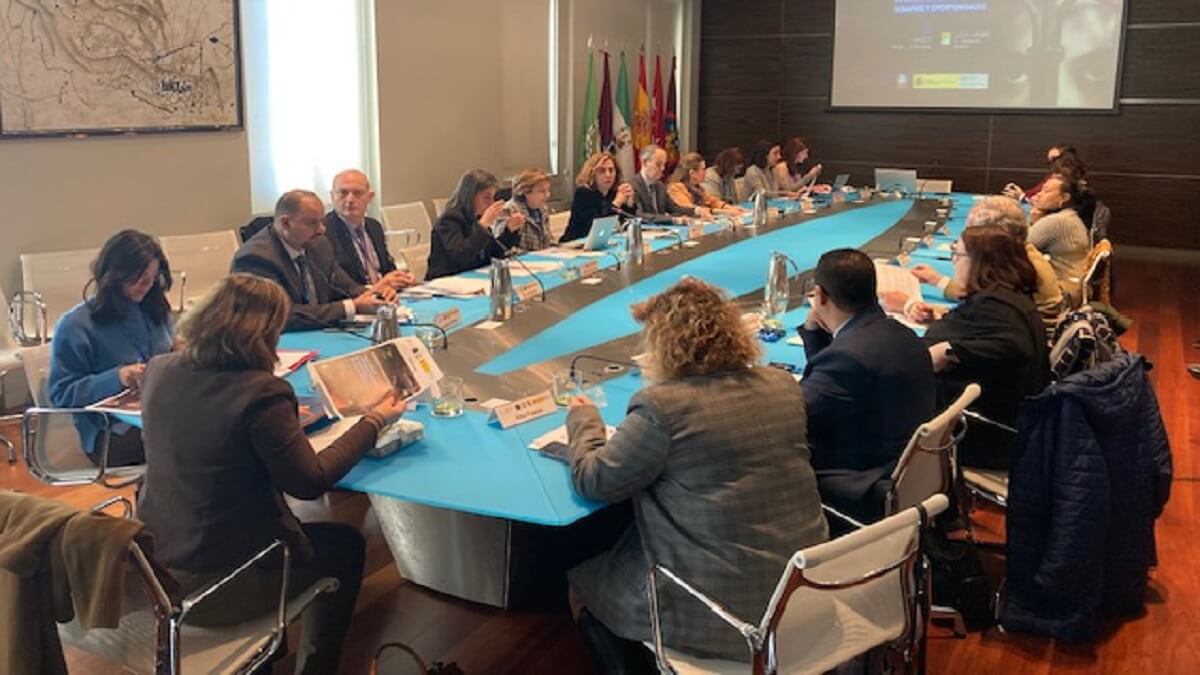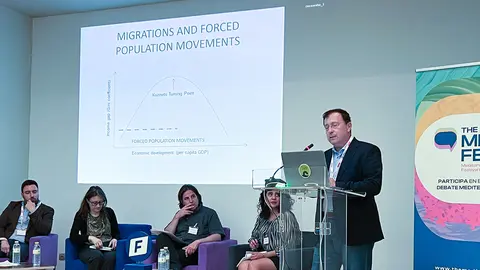Decent work and economic growth, the other great challenge in the Middle East

With the war in Gaza as its epicentre, the entire Middle East is in turmoil. A situation that is not so exceptional in one of the world's hottest spots, but which adds merit to the representatives and experts, from various countries in the region, to analyse the state of this human right and set new goals without renouncing the so-called Sustainable Development Goal (SDG8).
Organised by the Foundation for Social Promotion, through its Centre for Middle East Studies (CEMO) and its Women and Equality Observatory (OMEI), some twenty experts travelled to Casa Árabe's Madrid headquarters in order to examine the challenges and opportunities. Their merit was acknowledged by the Director of the Human Rights Office of the Ministry of Foreign Affairs, Fernando Fernández Aguayo: "Despite the tragic and very difficult situation their countries are going through, they wanted to come to Spain and share with us their experiences and knowledge in the field of access to decent and sustainable work".
Carmen Magariños, AECID's Director of Cooperation with Africa and Asia, stressed that the Middle East is a priority for Spanish cooperation, and that decent work and economic development are the basis of all the Agency's actions in the region. Magariños announced a new Regional Programme for the Arab World, which will consider employment and opportunities as one of its basic areas of intervention, along with ecological transition, environment and water, and gender equality.

The specific case of Palestine was addressed by Yousef Shalian, director of the Vocational Training Centre in Beit Hanina in Jerusalem. He pointed out that their VET programme is one of the oldest projects, dating back to 1949. "Now, in the current critical situation, we are providing psychosocial support to the students, their families and the trainers who have been affected".
Sameer al-Attar, from the Jordan Hashemite Fund for Human Development (JOHUD), explained the main challenges facing Jordan, such as the huge pressure of refugee migration flows from the conflict zone, rising unemployment, especially among women and youth, the gender gap in terms of economic independence, the tightening of monetary policy and the fall in commodity prices.
For her part, Sara López, technical adviser of the International Labour Organisation, pointed out that "in Arab countries, women constitute one of the most disadvantaged population groups in terms of decent employment and economic development, with a significant income gap, as they represent only 12.5% of total income". Much therefore needs to be done to close this gap.

In another session, Hiba Fawaz of the Association for Rural Skills Development presented the case of Lebanon, whose situation has been significantly aggravated by the conflict in the West Bank. She pointed out that 75% of the Lebanese population is currently below the poverty line, a situation that hits young people and rural areas the hardest, suffering the consequences of the lack of structural and public development policies.
Emad Gerges, from Upper Egypt for Education and Development (AUEED), spoke about the Egypt Vision 2023 strategy, which aims to reduce the impact of poverty on vulnerable populations by providing them with job opportunities and training. The panel was completed by Alejandra Ortega, responsible for Arab countries, Africa, Asia and ILO in the Trade Union Confederation of Comisiones Obreras, who demanded that the struggle for the right to a fair and equitable salary, safe and healthy working conditions, equal opportunities, the right to social protection, the effective application of international labour standards, freedom of association and trade union freedom should not cease. "We cannot talk about decent work without talking about fundamental freedoms. And this affects all regions of the world, so it is not an issue exclusive to the Middle East".
The Director of Casa Árabe, Irene Lozano, and the President of the Foundation for Social Promotion, Jumana Trad, were pleased that the cooperation between the two institutions in holding this international seminar has been maintained under the current adverse conditions.











